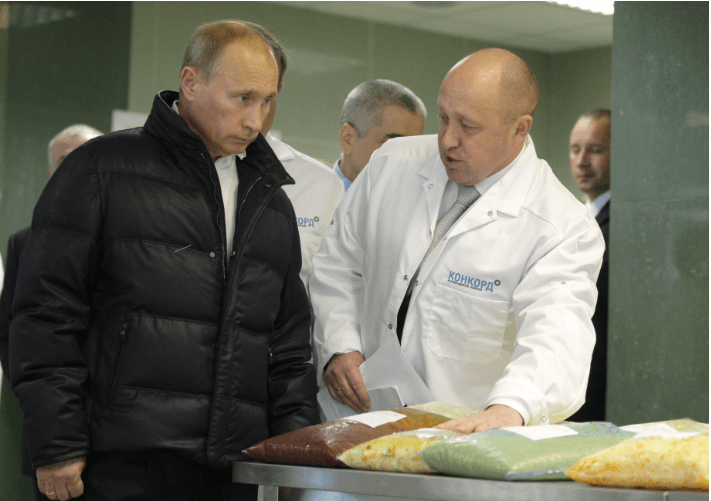While the war in Ukraine rages on past the 500-day mark, the situation within Russia continues to become more and more unstable. Following a mutinous march on Moscow, the warlord Yevgeny Prigozhin appears to be moving freely within Russia, despite a deal that stipulated his exile in Belarus. The Kremlin’s confusing response provides further evidence of how the war is affecting Putin’s grip on his own nation.
Prigozhin’s Attempted Coup
Yevgeny Prigozhin is a former convict, best known now as the leader of the infamous Wagner Group – a band of mercenaries engaged by Putin for many years to bolster Russian military activities abroad. They’ve played a key role in Russian human rights abuses in Africa, and have been heavily involved in the fighting in Ukraine.
Prigozhin has boasted of his troops’ centrality to the ‘special operation’ in Ukraine, while ridiculing official Russian military leadership as corrupt and incompetent. Defence Minister Sergei Shoigu is one of his favourite targets; he’s called him a vain coward and a scumbag. However, he’s been careful to stress this criticism doesn’t extend to Putin himself, with whom Prigozhin has long been very close.

Things came to a head two weeks ago, after Prigozhin alleged the Kremlin had carried out a missile strike on a Wagner camp in occupied Donbas. On June 23rd, Wagner forces marched across the border into Russia, and occupied the city of Rostov-on-Don, where citizens greeted them placidly. Even senior military officials in the city seemed pleased to meet and talk with Prigozhin.
The next morning, Wagner started its so-called “march for justice” on Moscow.
The Aftermath
The Wagner coup constituted the biggest challenge to Putin in his 23 years in power. But it came to an end surprisingly peacefully.
Belarusian President Alexander Lukashenko brokered a deal between the Kremlin and Prigozhin, and the warlord ordered his forces to stand down and withdraw from Rostov-on-Don. The terms of the peace deal were that Prigozhin would abandon his takeover, and in exchange be granted safe passage to exile in Belarus.
Despite the coup costing Russia at least thirteen soldiers’ lives, and constituting a mutiy, criminal charges against Prigozhin were dropped last week as part of Lukashenko’s deal.
And Prigozhin does not seem to have even honoured his side of the agreement. Although he apparently did fly to Belarus after the deal, he was never photographed there, and Lukashenko confirmed last Thursday that Prigozhin was back in Russia.
Putin’s spokesperson, Dmitry Peskov, said the Kremlin “did not have the desire nor the capability” to follow his movements, and Lukashenko has stated that Putin wouldn’t “wipe out” Prigozhin.
Instead, Moscow has focused on dismantling Prigozhin’s empire and public reputation, blocking most media outlets linked with him and conducting raids on his properties.
Footage aired on Russian TV as alleged evidence of these raids shows boxes of high-denomination roubles and dollars, gold bars, and arms caches, as well as collections of wigs and multiple passports in different names supposedly used by Prigozhin. There are also signs the Russian government has started to absorb Prigozhin’s Internet Research Agency – a notorious troll factory.
Despite efforts to discredit him in state media, one poll showed close to 30% of Russians continue to view Prigozhin in a positive light. And the lukewarm response to the coup suggests the Kremlin doesn’t feel it is capable of taking on the Wagner Group, say experts.
Follow Maddie’s journalism on Twitter.
Sign Up To Our Free Newsletter